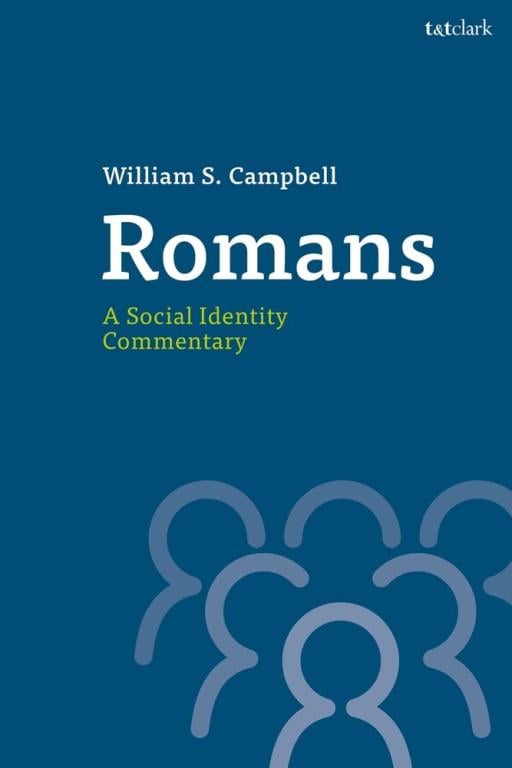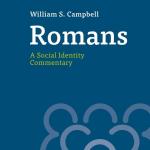Q. You argue that Christ as the telos of the Law in 10.4 means that Christ is the goal and completion of the Law for Gentiles in Christ. This is not Paul’s view. Paul believes the coming of Christ has inaugurated the eschatological and messianic age for Jew and Gentile alike and so the Gospel about this is for everyone. Christ is the goal, fulfillment completion of the law for anyone, but only if they are in Christ. Paul sees his own keeping of the Law as a blessed option, largely done for missionary purposes so, being the Jew to the Jew’ he may win some for Christ. And I imagine he would say that for Jews outside of Christ there is benefits to continue keeping the Mosaic Law. In fact, I suspect he would say that since God has plans for them to encounter Christ when he returns and all Israel will be saved, there is no need to insist or pressure all Jews to become followers of Christ in his own day. Christ will fix the problem later. This more than accounts for Paul’s positive assessment of the Law as holy, just and good, and also of statements that Jews have a proper zeal for God, like, he did before his conversion but it is not ‘a zeal according to knowledge about God’s plan for salvation of Jew and Gentile alike in Christ. Why is this a wrong analysis of Paul’s views?
A. When Paul speaks of Christ as the goal of the Law we must remember that in Romans he says this to gentiles. So to presume that this also said to Jews does not seem to be in the text. Gentiles need to know that the goal of the Law is Christ, meaning that the Law guides, or points gentiles to Christ, hence the later Christological readings of the Old Testament by Christians. This does not mean that it is not relevant anymore, should be not be followed anymore or seen to be in opposition to Christ. The meaning of fulfilment as having thereby come to end is rather strange, because when e.g. you fulfil a contract, this contract is established and confirmed not given up. This is the sense of telos here in my view. This becomes evident e.g. in Rom 13. 8-10 where Paul affirms the he who loves his neighbor has fulfilled every requirement of the Law (this is a very Jewish perception).
What do we envisage of Paul’s missionary activities ? He addresses the world of the gentiles where in most areas Jews would be a tiny minority if present at all. So if we think of Paul as an evangelist as well as a teacher then most of the time he is working amongst non-Jews. Of course Jews living in the diaspora had to adjust their way of life, that is, Torah observance to the circumstances in which they lived. This has nothing to do with a relativization of the Torah, or living according to it merely as a blessed option. Torah observance as the Jewish way of life is the essential expression of Jewish identity. To argue that this is an adiaphoron in Christ expects Jews to give up their identity. This is precisely what Paul argues against as this would mean that God is the God of some universal amalgam of undifferentiated gentiles. But Paul is adamant that God is the God of Israel AND the nations, and he takes both in their respective abiding identities seriously. To do otherwise would be to obliterate the one identity at the expense of the other. This is where some Christians are wrong to consider that they can only magnify Christ by minimizing connections with Jews and Jewish identity as if Christ were only the saviour of gentiles. Here SIT comes into play which demonstrates that any superordinate identity that negates the relevance of diverse sub-group identities risks intensifying tensions and strife between divergent groups.
Q. On p. 375 you suggest that the diatribe reflects Paul’s teaching style, to draw the disciple into conscious reflection on things. You add: “His letters and Romans in particular, are not documents dictated in brief pauses on his travels, but more likely reflect patterns not unique to the letters themselves but reflective of Paul’s teaching in the wider context.” I totally agree and this is why you can’t treat Romans apart from examining his thought in other capital Pauline letters, perhaps especially the ones written before Romans— 1 and 2 Thess. 1 and 2 Cor. and Galatians. And it is that wider context of Pauline thought that makes your reading of Romans problematic it seems to me. How would you respond?
A. I think that you are looking for something like the essence or an overview of Paul’s thought which I don’t think is available in the NT itself but only when the separate messages of the various letters in their differing contexts are put together in some meaningful relation/collection. I don’t necessarily oppose such a project, but think that the prior task to ascertain the individual messages is the more significant. Co-ordinating Paul’s differing perspectives across the letters is a difficult task which demands careful methodology across quite a large body of material. We also need to be careful that we keep to the NT focus on the letters as targeted to differing contexts, and not attempt to give a systematic expression of Paul’s thought which the apostle himself did not attempt, not even in Romans. I think that viewing Paul as a teacher may make us more aware of what the letters have in common but also draw attention to the specific new things he introduces at several points, e.g. in Romans he speaks for the first time of being buried with Christ, of the Law as being holy and the commandment as just and good, and of Israel’s unpersuadedness of the inauguration of messianic time. So one of the tasks requiring elaboration here would be the relative significance of items which Paul mentions only once, in contrast to those which are repeated in several contexts. Paul rightly does not speak of things that are not an issue for those people he is addressing in a particular letter. The letters are fragments of ongoing conversations between Paul and his communities, but in the case of Romans the letter is actually the initiation such a conversation. But we do not have the whole conversation, meaning not only that we only have the voice of Paul, but that we also do not know what preceded this written fragment of the conversation. There is perhaps a parallel with the four gospels. The church rightly rejected the attempts to harmonize these into one gospel as they were aware of and respected the differing emphases in each. Similarly, there is no one harmonized outline of Paul’s letters in the NT, thus letting them speak in their own particular voice, as I think Paul had intended them. The NT writings resemble a choral symphony rather than a monologue. This is why I try to hear the particular distinct tune in Romans while being aware of the many other important things Paul said elsewhere.












